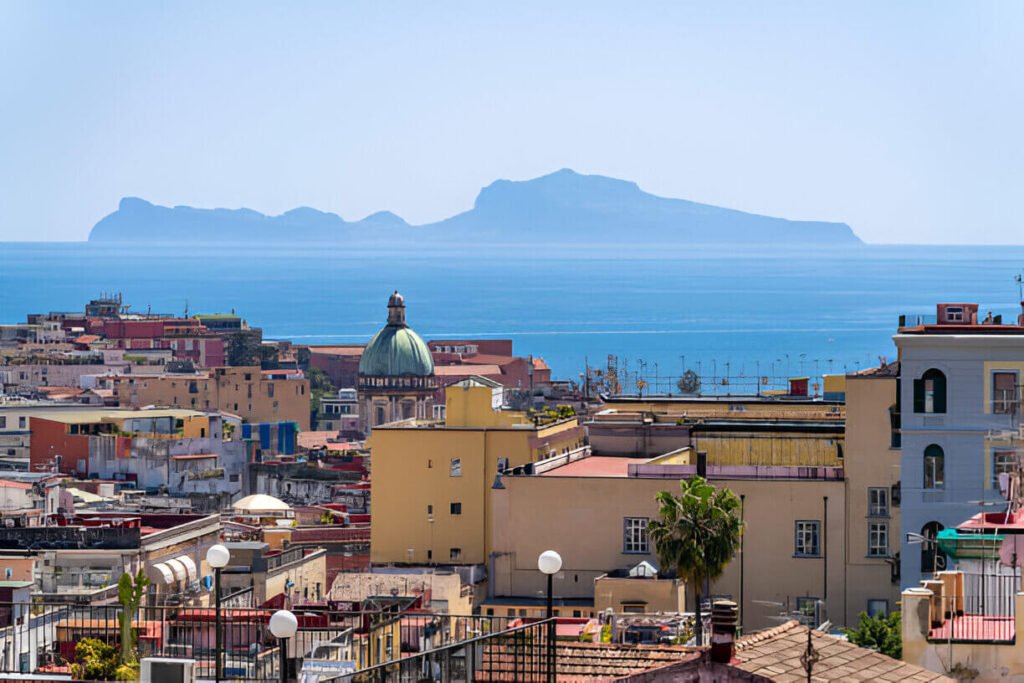Imagine stumbling upon a charming village home in the rolling hills of Tuscany, complete with a cozy kitchen, sun-drenched terraces, and a quaint garden – all for the price of a modest used car. For many foreign buyers, this dream has become a reality, as Italy has emerged as an unexpected hotspot for ultra-affordable real estate.
In recent years, stories of foreigners snatching up dilapidated but picturesque Italian properties for just a few thousand euros – or even a single symbolic euro – have captured the imagination of aspiring homeowners worldwide. From crumbling countryside villas to historic town center apartments, these bargain-basement deals have sparked a wave of interest in investing in Italy’s real estate market.
The allure is undeniable: the opportunity to own a piece of la dolce vita, surrounded by stunning landscapes, rich cultural heritage, and a relaxed Mediterranean lifestyle, all at a fraction of the cost of comparable properties elsewhere in Europe or North America. As word spreads of these tantalizing bargains, an increasing number of foreign buyers are flocking to Italy, determined to secure their slice of the affordable housing dream.
Why Is Property In Italy So Cheap?
The allure of ultra-affordable Italian properties often stems from a combination of demographic shifts and economic factors impacting certain regions of the country. One key reason is the depopulation of small villages and rural towns, particularly in southern Italy and more remote areas. As younger generations migrate to larger cities for employment and urban lifestyles, historic homes in dwindling towns are left vacant and in need of investment.
Another contributor is the aging housing stock itself. Many properties available at rock-bottom prices were constructed decades or even centuries ago using traditional building methods. While charming, these older structures frequently require extensive renovations to meet modern living standards, driving down their market value for local buyers.
The lack of interest from younger Italian homebuyers is another piece of the affordable housing puzzle. With limited employment opportunities and a preference for city living, rural villages hold little appeal for many residents. This diminished local demand allows prices to plummet in these areas.
Finally, some towns have embraced aggressive pricing strategies to attract foreign investment and revitalization. By selling run-down properties for nominal fees as low as €1, local governments aim to incentivize buyers to rehabilitate neglected homes and inject new life into shrinking communities. This proactive approach has contributed to the rise of bargain Italian real estate listings that pique global interest.
Hot Spots for Budget-Friendly Italian Real Estate
When it comes to finding ultra-affordable properties in Italy, certain regions stand out as prime destinations for budget-conscious buyers. The rural villages of southern Italy, particularly in areas like Sicily, Calabria, Puglia, and Campania, are known for their rock-bottom prices. Here, it’s not uncommon to find homes listed for as little as €1 or in the €10,000-€50,000 range.
Another hotspot is the countryside of Tuscany, Umbria, and Le Marche, where charming stone houses and rustic farmhouses can be scooped up for surprisingly low prices, often under €100,000. These regions offer a taste of the iconic Italian lifestyle at a fraction of the cost compared to major cities like Florence or Rome.
In these areas, local governments have embraced the concept of selling off neglected or abandoned properties at bargain basement prices. Their goal is to breathe new life into dwindling communities by attracting foreign investment and repopulating sleepy villages. For buyers, it presents an enticing opportunity to secure a piece of Italian paradise without breaking the bank.
Advantages of Buying an Affordable Italian Home
One of the biggest draws of purchasing an inexpensive property in Italy is simply the affordability factor. For many average foreign buyers, the idea of owning a home in Italy would typically be out of reach. However, with properties available for as little as $1 to $50,000 USD, this dream suddenly becomes a reality on a modest budget.
Beyond just the low purchase price, investing in an affordable fixer-upper in Italy can open the door to potentially flipping the property for a profit down the line. With some strategic renovations and elbow grease, buyers could significantly increase the value of their Italian home for an attractive resale. This presents an enticing opportunity for those looking to try their hand at a real estate investment project.
Another advantage to consider is the lower overall cost of living that comes with settling in one of Italy’s small towns or rural villages. Everyday expenses like groceries, utilities, and transportation tend to be more affordable compared to metropolitan areas. This financial breathing room can make life in Italy substantially more affordable for those on a tight budget.
Perhaps most appealing is the quintessential Italian lifestyle that comes with the bargain. Buyers of cheap real estate often find themselves immersed in the laid-back rhythms of these quaint communities, surrounded by historic architecture, idyllic landscapes, and that inimitable Italian atmosphere. With a warm, sunny climate and a pace primed for embracing “la dolce vita,” the lifestyle benefits can be invaluable.
Potential Pitfalls to Watch Out For
While the prospect of owning an Italian home for a mere fraction of the cost may seem alluring, potential buyers should be aware of several potential pitfalls and challenges that come with these ultra-affordable properties.
One major consideration is the hidden costs that can quickly add up. Beyond the initial purchase price, buyers must factor in renovation expenses, which can be substantial for older, neglected homes in need of extensive repairs or updates. Additionally, there are various taxes, fees, and legal costs associated with the property purchase and ownership that can significantly increase the overall investment.
The bureaucracy and paperwork involved in buying property in Italy as a foreigner can also be a daunting process. Navigating the legal requirements, obtaining the necessary permits, and ensuring proper documentation can be complex and time-consuming, especially for those unfamiliar with the Italian system.
For those interested in generating rental income from their Italian property, there may be limitations or restrictions on renting to short-term guests, which could impact the potential return on investment. Certain regions or municipalities may have specific rules or regulations regarding vacation rentals that buyers should research thoroughly.
Language barriers can also pose a challenge, particularly in rural areas where English proficiency may be limited. This can make it difficult to communicate effectively with local authorities, contractors, or real estate professionals, potentially leading to misunderstandings or complications.
The remote locations of many of these affordable properties can be both a blessing and a curse. While the tranquility and charm of small Italian villages may be appealing, buyers should consider the distance from major cities, airports, and essential amenities like hospitals or shopping centers, which could impact their quality of life or the property’s resale value.
Finally, there is always the risk that the property may require more extensive renovations than initially anticipated, leading to unforeseen costs and delays. Older homes, especially those that have been neglected or abandoned for years, can harbor structural issues, outdated systems, or other problems that may not be immediately apparent during the initial inspection.
Thorough research, due diligence, and a realistic understanding of the potential challenges are crucial for anyone considering purchasing an affordable Italian property. While the rewards can be great, being prepared for the potential pitfalls can help ensure a smoother and more successful investment experience.
Real-Life Experiences: Case Studies
The Dream Come True: Sarah’s Tuscan Villa Renovation
For Sarah, a 32-year-old freelance writer from Toronto, the idea of owning a historic Tuscan villa seemed like a far-fetched fantasy. That is, until she stumbled upon a listing for a 3-bedroom, 2-bath home in a tiny village outside of Siena, priced at just €35,000 (around $38,000 USD).
“I couldn’t believe my eyes,” Sarah recounts. “The photos showed an absolute wreck of a place, but I was enchanted by the original terracotta floors, the frescoed ceilings, and the potential it had.”
After several months of paperwork and renovations totaling €120,000, Sarah’s dream became a reality. Her 300-year-old villa is now a stunning combination of modern amenities and preserved historic charm. She spent several summers overseeing the renovation process, working closely with local contractors.
“It was challenging dealing with the language barrier and having to make decisions from abroad,” Sarah admits. “But the contractors knew I was committed to preserving the home’s authentic beauty.”
Now, she rents out the villa for over €4,000 per month during peak season, easily covering the mortgage, taxes, and maintenance fees. “Affordable real estate, gorgeous settings, and a fantastic lifestyle – what’s not to love about buying property in Italy?”
The Renovation Nightmare: Tom’s Costly Calabrian Cottage
Tom, a 57-year-old businessman from Manchester, had different dreams in mind when he purchased a tiny cottage in Calabria for only €10,000 with plans to renovate it into a vacation home. But what seemed like a bargain quickly turned into a money pit.
“We knew the place needed work,” Tom explains, “but we didn’t realize how much work until we were too far in.” Problems began mounting from day one – unexpected structural issues, skyrocketing labor costs, permitting nightmares, and weeks of delay.
Two years and over €150,000 later, the renovation still isn’t complete. Tom has had to take out loans against his home in the UK to cover the costs. “I’ve put so much money into this money pit, I almost feel like I can’t abandon it now,” he laments.
While the two-bedroom cottage will be lovely once finished, Tom isn’t sure if he’ll ever be able to rent it for enough to make it worthwhile. “If I could go back, I may have thought twice about this investment. The costs just never seem to end.”
Expert Tips for Navigating the Process
Buying property in Italy as a foreigner, especially an affordable fixer-upper, can be a minefield without proper guidance. To avoid costly mistakes, it’s crucial to enlist the help of local experts familiar with the nuances of the Italian real estate market.
One of the most valuable assets is a reputable real estate agent who specializes in working with foreign buyers. They can navigate the complex bureaucracy, paperwork, and legal requirements involved in purchasing property in Italy. A good agent will also have insights into realistic renovation costs and can connect you with reliable contractors.
Speaking of contractors, don’t skip the step of hiring professionals to thoroughly inspect and provide cost estimates for any renovations needed. Many bargain properties require significant work, and unexpected expenses can quickly add up.
It’s also essential to understand all the fees and taxes associated with buying property in Italy as a non-resident. These can include purchase taxes, annual property taxes, capital gains taxes if you plan to resell, and more. An experienced lawyer or accountant can ensure you comply with all regulations and avoid penalties.
Before making an offer, be sure to have the property’s deed and title thoroughly checked for any issues or encumbrances. This due diligence can prevent future legal headaches.
If you plan to generate rental income from your Italian property, research the specific rules and regulations in that area. Some regions have restrictions on short-term rentals or require special permits for non-residents.
Finally, don’t underestimate the value of visiting the property and surrounding area in person before committing to a purchase. This allows you to get a feel for the location, assess the condition of the home, and determine if it truly meets your needs and expectations.
Is It a Smart Investment?
Purchasing an inexpensive property in Italy can be an attractive proposition, but it’s crucial to carefully evaluate whether it’s a wise investment decision. While the low upfront costs may seem tempting, several factors should be considered to determine the long-term viability and potential returns.
One key aspect to consider is the potential for appreciation. While properties in rural areas may be affordable, their value may not increase significantly over time due to factors like depopulation and lack of economic growth. However, properties in popular tourist destinations or areas with strong real estate markets could potentially appreciate in value, making them a more promising investment opportunity.
Another important consideration is the potential for generating rental income. Properties in popular tourist regions or near major cities may have a higher demand for short-term or long-term rentals, providing a steady stream of income. However, properties in remote villages may have limited rental potential, especially during off-peak seasons.
It’s also essential to factor in the ongoing costs of ownership, such as maintenance, repairs, utilities, and property taxes. Older properties or those requiring extensive renovations may incur significant expenses over time, potentially offsetting the initial affordability. Additionally, the costs of traveling to and from the property, especially if it’s in a remote location, should be considered.
Furthermore, the process of buying and owning property in Italy as a foreigner can be complex, with various legal and bureaucratic hurdles to navigate. Seeking professional assistance from real estate agents, lawyers, and local experts can help mitigate potential risks and ensure a smooth transaction.
Ultimately, the decision to invest in an inexpensive Italian property should be based on a thorough analysis of your specific goals, financial situation, and risk tolerance. While some properties may indeed present a smart investment opportunity, others may prove to be more of a liability or a costly hobby. Conducting due diligence, seeking expert advice, and carefully weighing the pros and cons will help you make an informed decision.
Who Should Consider Affordable Italian Real Estate?
Purchasing an ultra-cheap property in Italy can be an intriguing prospect, but it’s not necessarily a wise move for everyone. The ideal buyers who stand to benefit the most are those with specific goals and circumstances aligned with the realities of these inexpensive homes.
Retirees or those nearing retirement age could find affordable Italian real estate particularly appealing. With a lower cost of living and a more relaxed lifestyle, owning a modest home in a quaint Italian village can make for an enjoyable retirement haven. The affordability factor means retirees can potentially purchase a property outright without taking on a burdensome mortgage.
Investors with a keen eye for renovation projects may also be drawn to the potential of ultra-cheap Italian properties. While the initial purchase price might be a steal, these homes often require significant work to bring them up to modern standards. Investors with the resources, expertise, and patience to tackle such projects could potentially turn a tidy profit by renovating and reselling or renting out the properties.
For those seeking a vacation home or pied-à-terre in Italy, the allure of an inexpensive property can be hard to resist. With prices often a fraction of what they would pay in major cities or tourist hotspots, owning a little slice of Italian paradise becomes more attainable. However, it’s crucial to factor in the potential challenges of maintaining a vacation home abroad, such as logistics and management from afar.
Ultimately, the ideal buyers for ultra-cheap Italian real estate are those with realistic expectations, a willingness to navigate bureaucracy, and the financial means to cover not just the purchase but also the potential hidden costs and renovations. With the right mindset and preparation, these properties can offer a unique opportunity to own a piece of la dolce vita at an unbeatable price.
Conclusion: The Realities of Cheap Italian Homes
The allure of affordable Italian properties is undeniable, with homes available for as little as a few thousand dollars or even just one euro. However, as with any seemingly too-good-to-be-true deal, there are significant caveats to consider. While the low purchase prices can open doors for those with modest budgets to become homeowners in a dream destination like Italy, the hidden costs and challenges often outweigh the upfront savings.
On the plus side, buyers can enjoy a lower cost of living, potential rental income opportunities, and the chance to renovate a fixer-upper into their ideal Italian abode. The warm climate, rich culture, and relaxed lifestyle also make the country an appealing place to invest in real estate. However, the downsides include navigating bureaucratic red tape, language barriers, remoteness from amenities, and the risk of properties requiring extensive (and expensive) renovations.
Ultimately, whether these deals are truly worthwhile depends on the individual buyer’s circumstances, goals, and willingness to tackle the obstacles. For those with the resources, patience, and determination to overcome the hurdles, an affordable Italian property could be a rewarding long-term investment. But for others, the challenges may outweigh the benefits, and a more turnkey option might be preferable.
As for the future of this trend, it’s likely that the allure of cheap Italian homes will continue to draw interest from foreign buyers seeking a slice of la dolce vita. However, as more buyers enter the market and demand increases, prices may gradually rise, making these once-in-a-lifetime deals harder to come by. For now, those considering taking the leap should do their due diligence, seek expert guidance, and carefully weigh the realities before committing to an affordable Italian property purchase.


